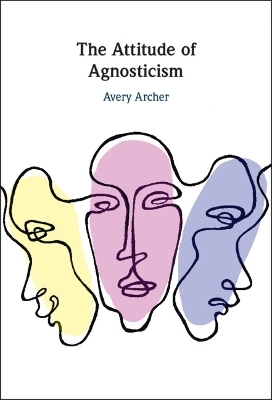
The Attitude of Agnosticism
Seiten
2024
Cambridge University Press (Verlag)
978-1-009-21473-5 (ISBN)
Cambridge University Press (Verlag)
978-1-009-21473-5 (ISBN)
We often describe ourselves as agnostic on a wide range of questions, such as does God exist, is String Theory true, or will the President win re-election? But what does it mean to be agnostic and when is agnosticism justified? This monograph addresses these and related questions.
We often describe ourselves as agnostic on a wide range of topics, such as does God exist, is String Theory true, or will the President win re-election? But what, precisely, does it mean to be agnostic? This monograph employs the tools and techniques of analytic philosophy to offer a broad account of what it means to be agnostic in both theological and non-theological contexts, and offers a critical discussion of the major descriptive accounts of agnosticism in the contemporary analytic philosophical literature. Unlike most other volumes on the subject, which approach the question from a theological point of view, this is the first book-length discussion of agnosticism from a purely philosophical, as opposed to theological, point of view. It serves as a natural starting-point for students and specialists in philosophy and anyone who is interested in the topic of agnosticism through the lens of analytic philosophy.
We often describe ourselves as agnostic on a wide range of topics, such as does God exist, is String Theory true, or will the President win re-election? But what, precisely, does it mean to be agnostic? This monograph employs the tools and techniques of analytic philosophy to offer a broad account of what it means to be agnostic in both theological and non-theological contexts, and offers a critical discussion of the major descriptive accounts of agnosticism in the contemporary analytic philosophical literature. Unlike most other volumes on the subject, which approach the question from a theological point of view, this is the first book-length discussion of agnosticism from a purely philosophical, as opposed to theological, point of view. It serves as a natural starting-point for students and specialists in philosophy and anyone who is interested in the topic of agnosticism through the lens of analytic philosophy.
Avery Archer is Associate Professor of Philosophy at George Washington University. He has published articles in several academic journals, including Philosophical Studies, Philosophia, Theoria, and Analysis.
1. Introduction; 2. Criteria for a satisfactory account of agnosticism; 3. Competing attitudinal accounts of agnosticism; 4. The questioning-attitude account of agnosticism; 5. Agnosticism and the inquiring state of mind; 6. The act-attitude account of doxastic neutrality; 7. On the non-existence of practical agnosticism; 8. Agnosticism and pragmatic reasons; 9. Agnosticism, permissivism, and peer disagreement; 10. Conclusion; Bibliography; Index.
| Erscheinungsdatum | 09.03.2024 |
|---|---|
| Zusatzinfo | Worked examples or Exercises |
| Verlagsort | Cambridge |
| Sprache | englisch |
| Themenwelt | Geisteswissenschaften ► Philosophie ► Erkenntnistheorie / Wissenschaftstheorie |
| Geisteswissenschaften ► Philosophie ► Metaphysik / Ontologie | |
| Geisteswissenschaften ► Religion / Theologie | |
| ISBN-10 | 1-009-21473-X / 100921473X |
| ISBN-13 | 978-1-009-21473-5 / 9781009214735 |
| Zustand | Neuware |
| Informationen gemäß Produktsicherheitsverordnung (GPSR) | |
| Haben Sie eine Frage zum Produkt? |
Mehr entdecken
aus dem Bereich
aus dem Bereich
die Grundlegung der modernen Philosophie
Buch | Softcover (2023)
C.H.Beck (Verlag)
CHF 25,20
Buch | Softcover (2023)
Reclam, Philipp (Verlag)
CHF 9,80

![Was heißt Denken?. Vorlesung Wintersemester 1951/52. [Was bedeutet das alles?] - Martin Heidegger](/media/113619842)
